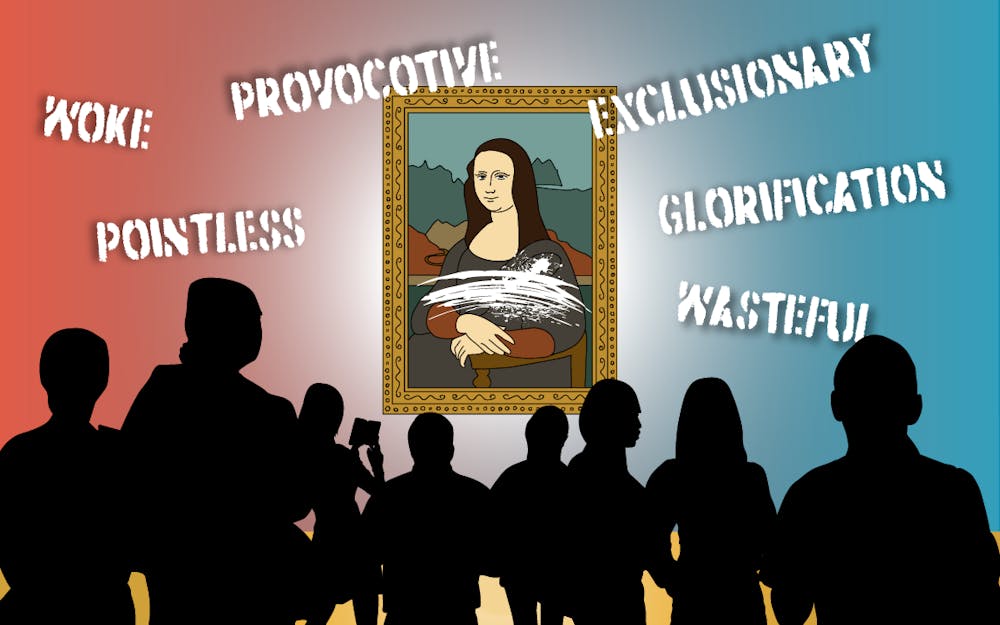It’s been a terrible year for The Walt Disney Company. Bob Iger, the conglomerate’s CEO, has to contend with the fact that, for his baby’s 100th birthday, he’s been given nothing but box office flops — besides Pixar’s “Elemental” and Marvel’s “Guardians of the Galaxy Vol. 3,” every film on Disney’s roster this past year has been a disappointment critically and commercially.
In other words, things are looking very, very bad for the Mouse and his associates.
There’s an entire research paper to be written in determining and explaining why this is the case, but Iger himself has a few theories: from the alleged inattentiveness of certain films during the COVID-19 pandemic to the company's proliferation of sequels. And, in an apparent nod to reactionaries touting the “go woke, go broke” mantra, Iger also said the studio’s films have been too focused on messaging. Simply put, Disney has been too political.
This is a common argument among conservatives, not just toward Disney but toward the film industry — and, really, the entire art industry as a whole: films (and music, television, books, etc.) are “too political” nowadays. Nobody goes to the movie theater to be preached to. We want to be entertained; if we wanted politics we’d turn on C-SPAN.
But, this line of thinking doesn’t take into account the basic fact that all art, whether we want it to be or not, is inherently political. Full stop. There are no exceptions.
In my Introduction to Design and Production class this semester, the professor argued artistic works fall into one of three categories: explicitly ideological, which include works that obviously present a political agenda; implicitly ideological, which present an agenda in a way that’s more hidden; and those with a neutral ideology, meaning they don’t aim to be political in the slightest.
[Related: OPINION: Art should make you uncomfortable]
This isn’t an entirely wrong viewpoint, as not every work of art sets out with the direct purpose of being political. However, it’s disingenuous to argue that, even if this is the case, those works are inherently apolitical. When discussing this topic, it’s easiest, and imperative, to begin with the Marxist sociological view: society can be seen as a base and a superstructure that shape and maintain each other. The base is all that relates to our economic conditions — think the actual means of production and the class relations. Everything else rests in the superstructure, including culture, religion, philosophy, politics, education and, yes, art.
Obviously, being a Marxist philosophy, this theory suggests that the base is the more dominant of the two forces, shaping the superstructure. No art exists in a vacuum. It is all created in a certain material condition and nothing can change this. As it currently stands, we live in a capitalist world — from capitalism, then, art is created. Until the day capitalism is no longer our societal ideology, in the Marxist sense of the word, all art is going to be created, consciously or unconsciously, to either maintain it or rebel against it.
As I write this, I’m in the middle of reading “A Room of One’s Own” by Virginia Woolf, a landmark essay of the early-20th century feminist movement. In it, she argues, in a truly Marxist fashion, against the material conditions that prevent women from being as successful writers as men. “Fiction is like a spider’s web,” she said, “attached ever so lightly perhaps, but still attached to life at all four corners.”
Some art, she argued, was obviously connected to the world it was created in, while others, like those of William Shakespeare, seem to exist independent of it: strokes of genius that could never have been influenced by a world working against them. “But when the web is pulled askew … one remembers that these webs are not spun in mid-air by incorporeal creatures, but are the work of suffering human beings, and are attached to grossly material things, like health and money and the houses we live in.”
In other words, art cannot be divorced from the ideology and material conditions in which it is created. Everything works in tandem with everything else; nothing, and nobody, is truly independent. The world’s economic conditions affect everything, yes, but the superstructure affects the superstructure as well. Art is influenced by politics, and vice-versa; the same can be said of religion, for example, or, as Woolf spent much time discussing in her essay, education, too.
At one point, she discusses Jane Austen’s 1813 masterpiece, “Pride and Prejudice.” Austen did not have a room of her own to write in, only a common sitting-room. In this common room, Woolf said, Austen would often hide her manuscripts as others walked in, ashamed of the act of writing them — remember, she was living in a time when women weren’t expected to write much more than letters. And while this story may be apocryphal, one truth remains: Austen chose to publish the novel, along with her other popular novels, anonymously.
“Would ‘Pride and Prejudice’ have been a better novel if Jane Austen had not thought it necessary to hide her manuscript from visitors?” Woolf wondered. In the end, she came to the conclusion that, despite the alleged troubles Austen had whilst writing it, “Pride and Prejudice” remained a landmark, masterful work among the canon of feminine literature. This was because, she argued, Austen had written in a way that was uniquely feminine — she had taken advantage of the fact cultural hegemony is maintained through art and rejected ideology, gaining control of her own.
[Related: OPINION: The heralding of a beautiful apocalypse: A Marxist love story]
All this for a novel that is never, as my professor would put it, explicitly or even implicitly “ideological.”
Disney may abandon their practice of social messaging. Whether or not they should isn’t the point. But their works will remain political regardless. Marvel will almost certainly continue to receive funding and approval from the United States Armed Forces. The Walt Disney Company will continue to monopolize the film industry and uphold capitalist hegemony. Bob Iger, and every bourgeoise elitist working for his company, have a room of their own to maintain the economic base of society, and there is nothing more political than that.
Joey Sills (he/him) is a junior studying English and political science.






